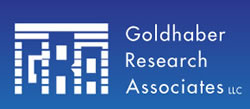New York State Attorney General Eric Schneiderman filed 12 civil lawsuits on July 10,2012 throughout New York State against 16 head shops that sold synthetic drugs which were marketed as different products such as glass cleaner, potpourri, bath salts and spice. The main claim in these lawsuits is that the products violate consumer protection laws for labeling by failing to warn consumers of the products' content, safety and health risks. Governor Cuomo had already banned the sale of synthetic marijuana in New York after media reports (especially from the New York Daily News) revealed how deadly these drugs could be. Synthetic drugs not only imitate the effects of pot but also cocaine, LSD and meth and, in some cases have been found to be anywhere from 2-500 times stronger than the THC found in regnlar marijuana. But to get around the ban, which is now national, manufacturers of synthetic drugs have simply changed the chemicals found in their products, thus leading Attorney General Schneiderman to sue the retailers for failure to warn.
His lawsuit states that the labels on these synthetic drugs are deliberately "deceptive, fraudnlent and illegal business practices." It also states that "selling products for human consumption that are insufficiently labeled or mislabeled is inherently dangerous." As one recent example of how dangerous these drugs can be, Ryan Santanna, a 21 year-old film stodent, died after jumping off a balcony last year after smoking salvia, a hallucinogenic plant.
The shops had been selling these synthetic drugs under such market-appea1ing names as Bizzaro, Amped and Cali Crunch. Though the drugs' packaging states the products are not intended for human consumption, their design, labeling and marketing clearly allude to the product being smoked and inhaled.
How common is the use of synthetic drugs throughout the Uuited States? According to the American Association of Poison Control Centers, calls nationwide indicate a dramatic rise in synthetic drug abuse. In 2010, poison control centers received 302 calls about bath salts. In 2011, centers received more than 5,600 reports of bath salt abuse. Synthetic marijuana use is also on the rise. In 2010, there were more than 2,900 calls from around the country to poison control centers, and in 2011, there were more than 5,700.
If Attorney General Schneiderman is successful in his failure to warn lawsuits, the hope is that these numbers will start to drop.
Feel free to pass this issue of the Goldhaber Warnings Report on to any friend or colleague.
Dr. Gerald M. Goldhaber, the President of Goldhaber Research Associates, LLC, is a nationally recognized expert in the fields of Political Polling and Warning Label Research. His clients include Fortune 500 companies, as well as educational and governmental organizations. He has conducted hundreds of surveys, including political polls for candidates running for U.S Congress, Senate, and President. Dr. Goldhaber also served as a consultant to President Reagan's Private Sector Survey for Cost Control.
©Copyright - All Rights Reserved
DO NOT REPRODUCE WITHOUT WRITTEN PERMISSION BY AUTHOR.










